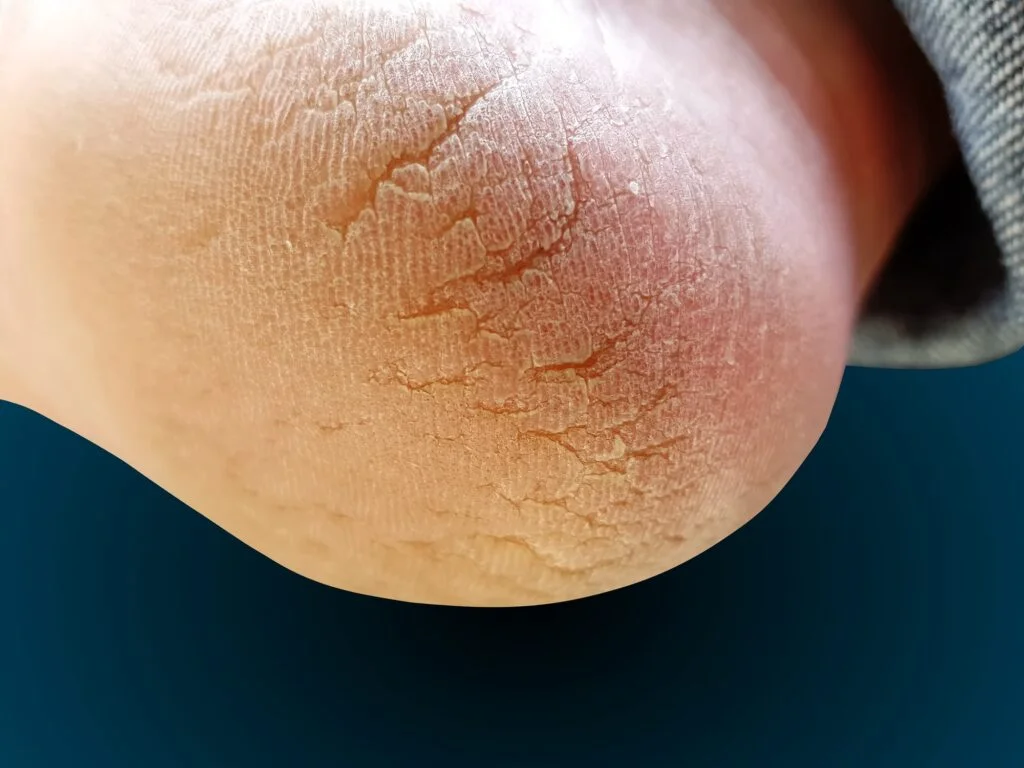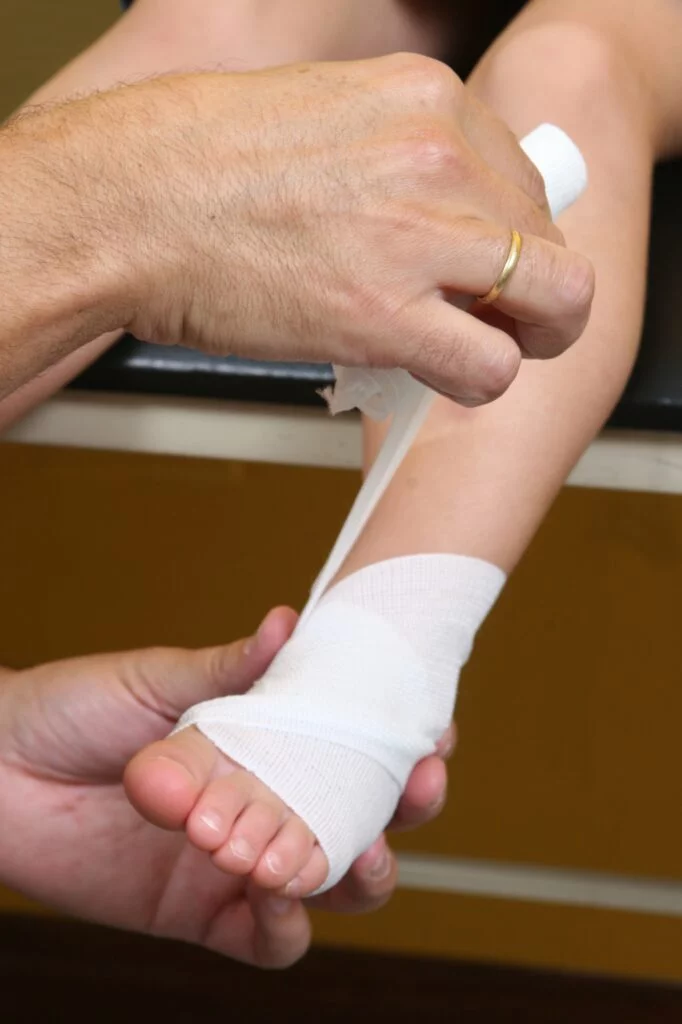Heel Fissures: Causes, Symptoms, and Treatment
Heel fissures, also known as cracked heels, are splits or cracks in the skin on the back or bottom of the heel. At the Foot Care Center, our podiatrists specialize in treating heel fissures to relieve pain, prevent infection, and restore healthy skin.
What Are Heel Fissures?
Heel fissures occur when the skin becomes dry, thickened, and loses its elasticity, leading to painful cracks. They can range from superficial, minor cracks to deep fissures that may bleed or become infected. Heel fissures are more common in people with dry skin, prolonged standing, or underlying foot conditions.
Causes of Heel Fissures
- Dry or dehydrated skin due to environmental factors or aging
- Excessive pressure on the heels from obesity or prolonged standing
- Improper footwear that lacks support or cushioning
- Skin conditions such as eczema or psoriasis
- Diabetes or peripheral neuropathy, which reduce skin integrity
- Callus formation that leads to cracking under pressure
Symptoms of Heel Fissures
- Visible cracks or splits in the heel skin
- Dry, thickened, or rough skin
- Pain or discomfort when walking or standing
- Bleeding or discharge from deep cracks
- Redness, inflammation, or signs of infection in severe cases
How Heel Fissures Are Diagnosed
Diagnosis is typically clinical, based on visual examination and patient history. At the Foot Care Center, podiatrists also assess for:
- Underlying calluses or thickened skin contributing to cracks
- Foot mechanics or pressure points from gait abnormalities
- Risk factors such as diabetes or neuropathy
- Signs of infection that require immediate attention
Treatment Options for Heel Fissures
Non-Surgical Treatments
- Debridement: Professional removal of thickened skin to reduce pressure on cracks
- Moisturizing and emollient creams: To hydrate skin and restore elasticity
- Protective padding: To relieve pressure on affected areas
- Footwear adjustments: Shoes with cushioned heels and proper support
- Topical medications: Antibiotic creams if cracks are infected
- Activity modifications: Reducing prolonged standing or walking until healed
Surgical or Advanced Interventions
In rare cases where deep fissures do not respond to conservative care, minor surgical procedures or advanced wound care may be recommended to promote healing and prevent recurrence.
Complications of Untreated Heel Fissures
- Persistent pain and difficulty walking
- Infection, which can spread to deeper tissues
- Bleeding and inflammation
- Chronic thickening and hardening of heel skin
Prevention of Heel Fissures
- Daily moisturizing and skin hydration
- Wearing supportive and cushioned footwear
- Regular removal of calluses and thickened skin
- Avoiding prolonged standing on hard surfaces
- Managing underlying conditions such as diabetes or eczema
Why Choose Foot Care Center for Heel Fissure Care
The Foot Care Center provides expert evaluation and treatment for heel fissures. Our podiatrists create personalized care plans to relieve pain, treat underlying causes, and prevent future cracks, ensuring your feet remain healthy and comfortable.
Final Thoughts
Heel fissures can cause significant discomfort and even infection if left untreated. With professional care at the Foot Care Center, you can restore healthy skin and prevent complications, keeping your feet pain-free and functional.


